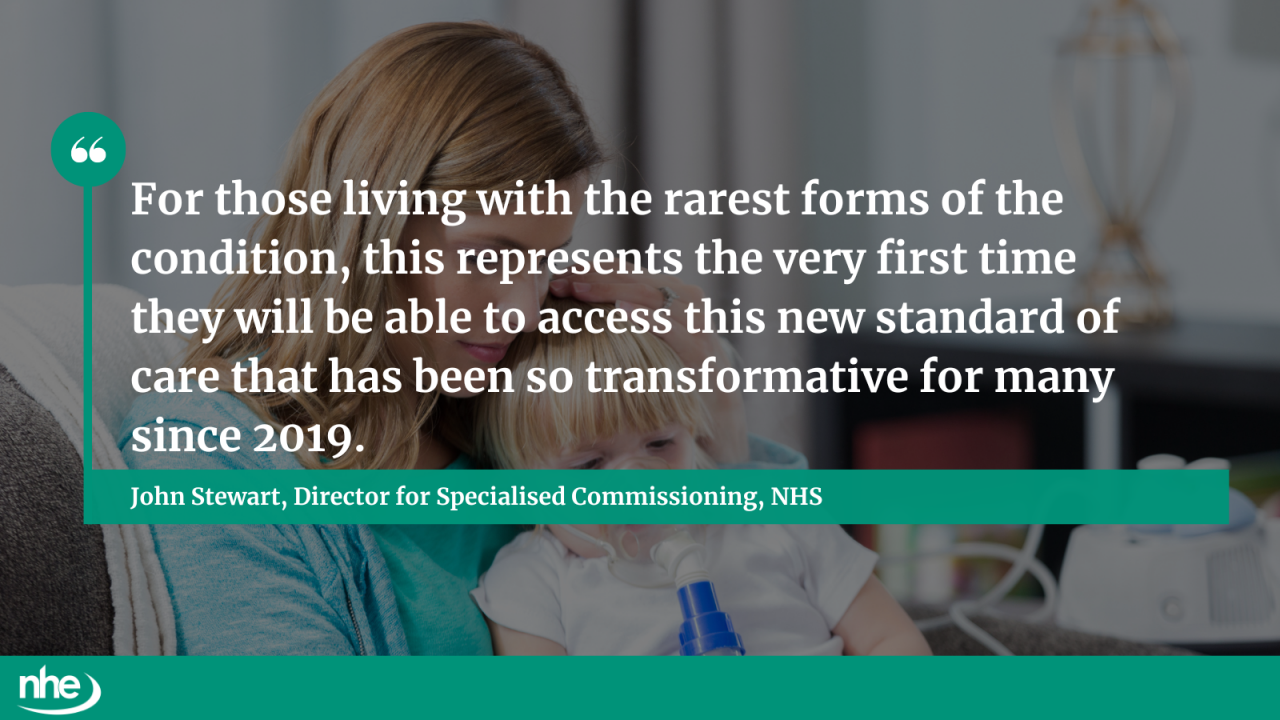Hundreds of children and adults in England with rare forms of cystic fibrosis will now be able to access a new triple-combination therapy, Alyftrek, for the first time, the NHS has announced.
The once-daily pill, approved by NICE and secured through a commercial deal with manufacturer Vertex, is the latest in a new generation of CFTR modulator therapies that treat the underlying cause of cystic fibrosis – not just the symptoms.
Patients with the F508del mutation, the most common form of CF, can now access Alyftrek as an alternative to Kaftrio, while for the first time, patients with rare CF mutations, previously ineligible for modulator therapy, will also be offered access to Alyftrek or Kaftrio under new NHS England guidance.
This expansion means around 95% of people with CF in England are now eligible for modulator therapy.
The NHS’s Director for Specialised Commissioning, John Stewart, commented:
“This is a major leap forward for hundreds of patients living with the rarest forms of cystic fibrosis, offering fresh hope of a better quality of life.
“Access to a once-daily treatment at home can make an enormous difference to patients and their families – reducing the burden of hospital appointments and allowing children and young people to live more freely and independently.
“For those living with the rarest forms of the condition, this represents the very first time they will be able to access this new standard of care that has been so transformative for many since 2019.
“The roll-out of this life-changing therapy demonstrates how the NHS continues to embrace innovation to deliver significant improvements in care for patients across the country at a fair price for the taxpayer”.

Alyftrek is taken once daily at home, offering greater convenience and helping reduce hospital visits. Clinical trials show it is at least as effective as Kaftrio in improving lung function in patients aged 12 and over with the F508del mutation.
For patients with rarer mutations, doctors will be able to prescribe Alyftrek where there is significant unmet clinical need, even in the absence of trial data, following a model used by the European Medicines Agency.
While modulator therapies are a breakthrough, the NHS continues to support those who cannot tolerate or are not eligible for these treatments. These patients may require more intensive clinical, psychological, and social care.
Patients on modulator therapies will also receive ongoing monitoring, including liver function tests and support from multidisciplinary teams to manage their condition and prevent complications.
Image credit: iStock



















